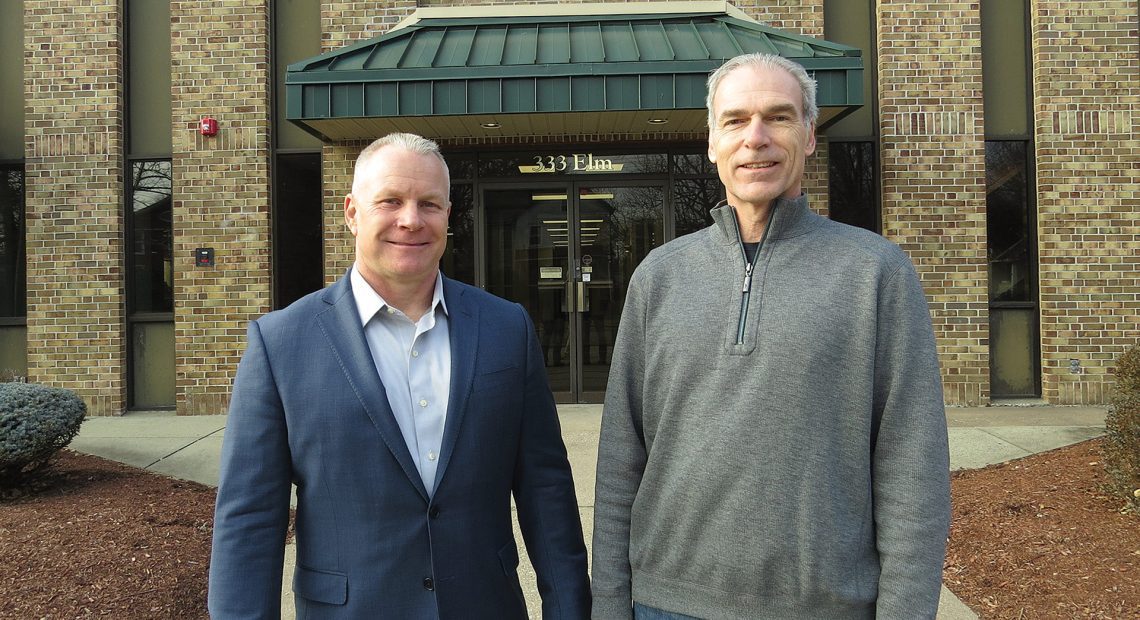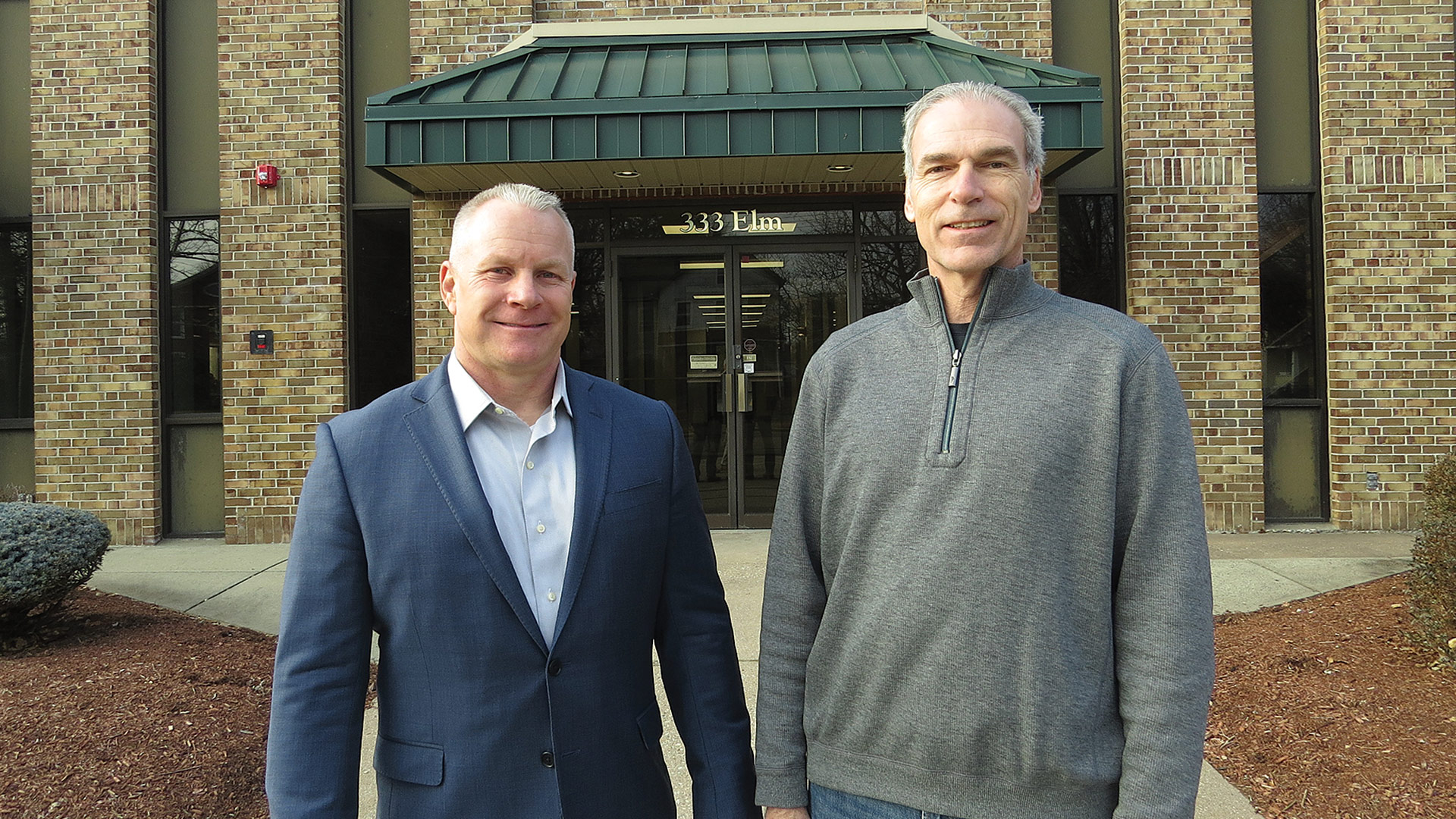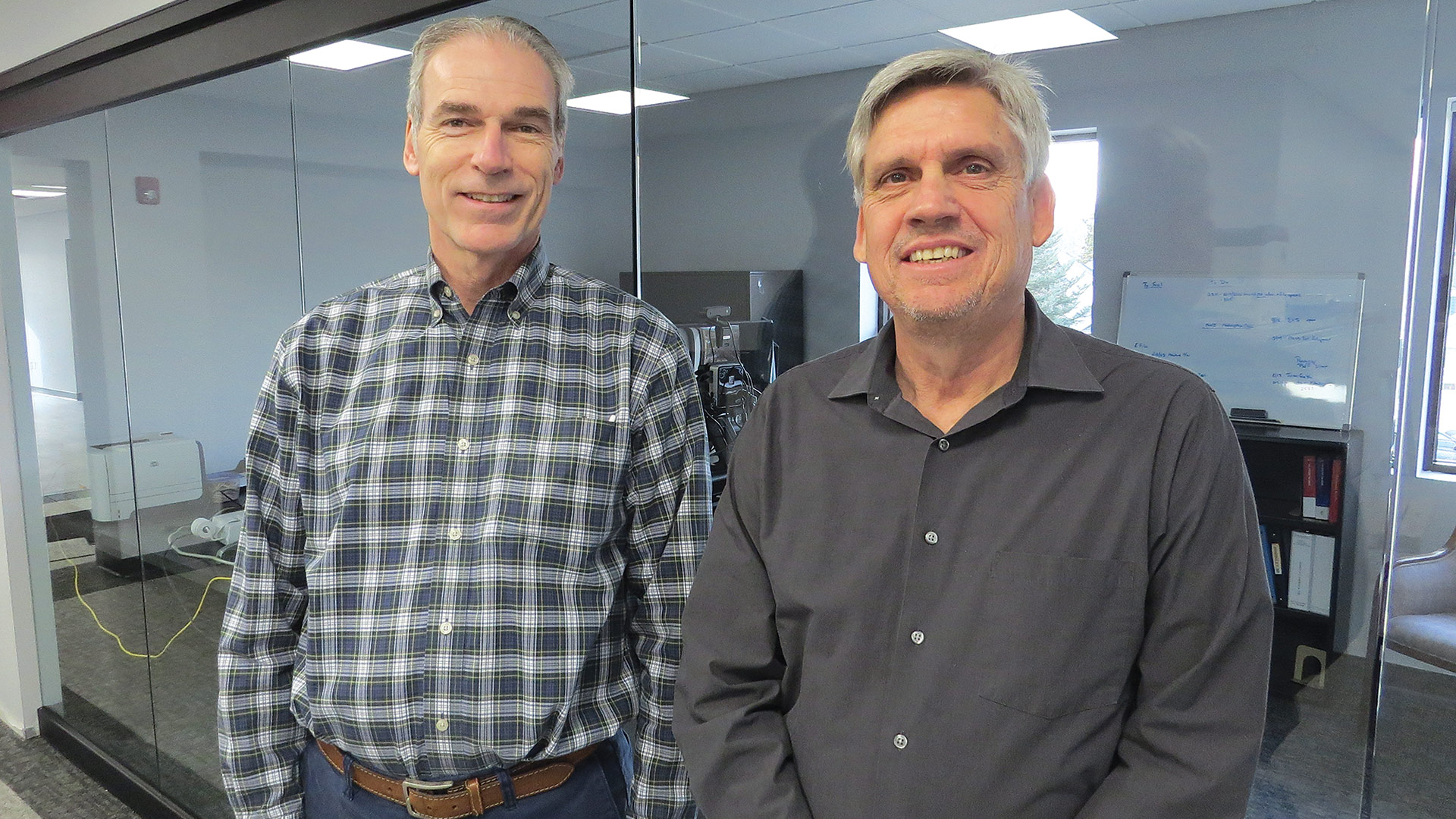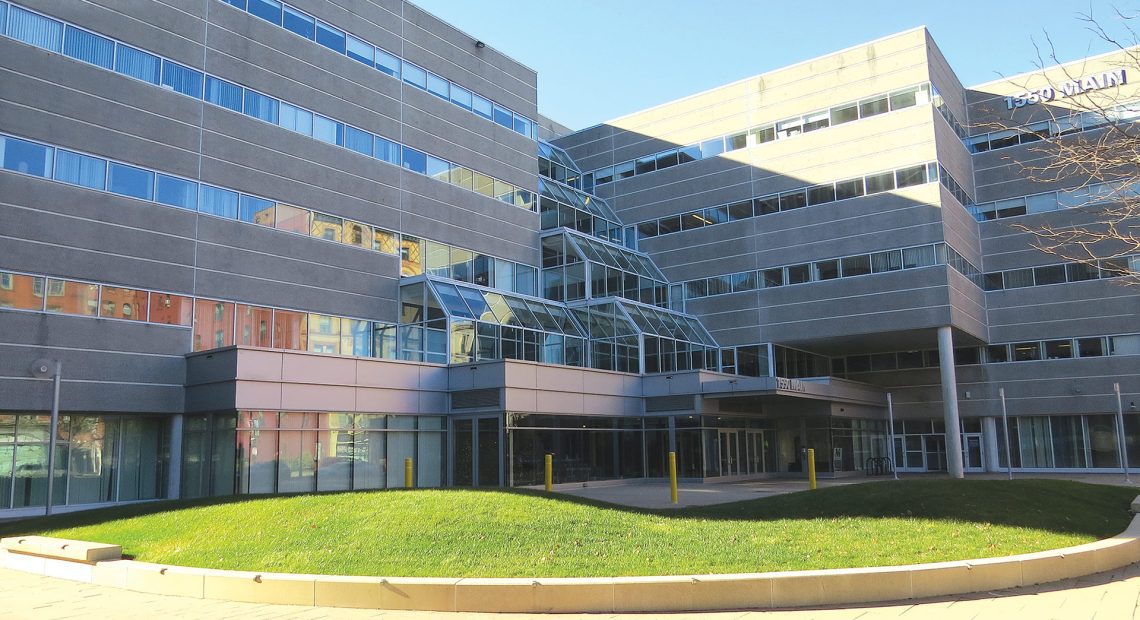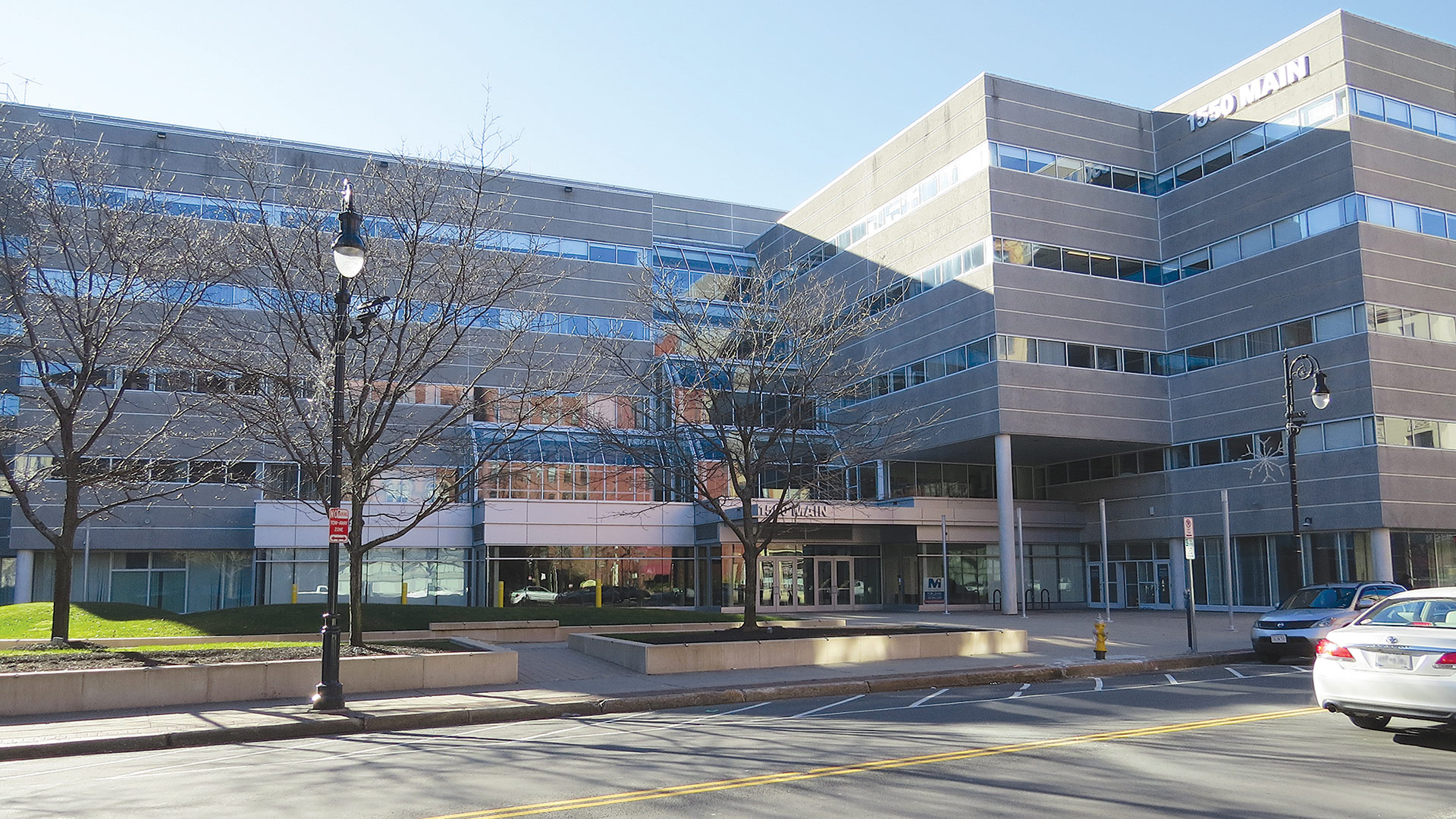Come as You Are

Jeremy Goldsher says Greenspace CoWork melds modern amenities with a distinctly Greenfield vibe.
Co-working spaces — hives of business where members share office space — have taken root in many Western Mass. communities over the past several years, for a number of reasons, from the efficiency of sharing resources to opportunities to network and be inspired by other professionals. In the past year and a half, two have cropped up a block apart in downtown Greenfield, with different types of clientele but the same goal: to help enterprises develop and grow, and have fun doing it.
The way people work has changed dramatically since the last century, Jeremy Goldsher says — and so has where people work.
“There are so many intelligent people doing incredible things here, and they don’t feel like they have to go to Boston or New York or Hartford or wherever to flourish,” said Goldsher, who launched Greenspace CoWork about 18 months ago with business partner Jeff Sauser. “No, you don’t have to do that anymore. You can do it from locations all over the place.”
But why not just work from home, as so many companies encourage their employees to do? To Goldsher — and others who believe in the value of co-working spaces — it’s about culture, energy, and especially connection.
“In the great rush to connect people with technology, we’ve forgotten one of the most important things that connects people, and that’s human interaction,” he told BusinessWest. “I think we get a lot of really brilliant people who move out here to get away from the cities and raise families, but there’s not a lot of opportunities to interact, congregate, and meet their neighbors.”
That’s why more people are taking advantage of the co-work model. In some cases, he said, they’ve moved to Greenfield specifically because co-working was an option.
“In the great rush to connect people with technology, we’ve forgotten one of the most important things that connects people, and that’s human interaction.”
“We offer the same amenities you’d get in New York or Boston. But you can do it in a rural setting where you can leave work, go down to the river, swim, come back, jump back on your computer, and Skype with someone in Dubai. We have people here whose companies are spread out all over the country or all over the world, yet they can congregate in the kitchenette, talk over coffee, talk about each other’s kids, and maybe grab a beer after work. It’s just wonderful to see these people enrich their own lives.”
A block away in downtown Greenfield, Pat King, executive director of Another Castle, told BusinessWest that he and Paul Hake, CEO of HitPoint Studios, opened their co-working space, which caters to video-game developers and designers, a little over a year ago after the pair recognized its potential.
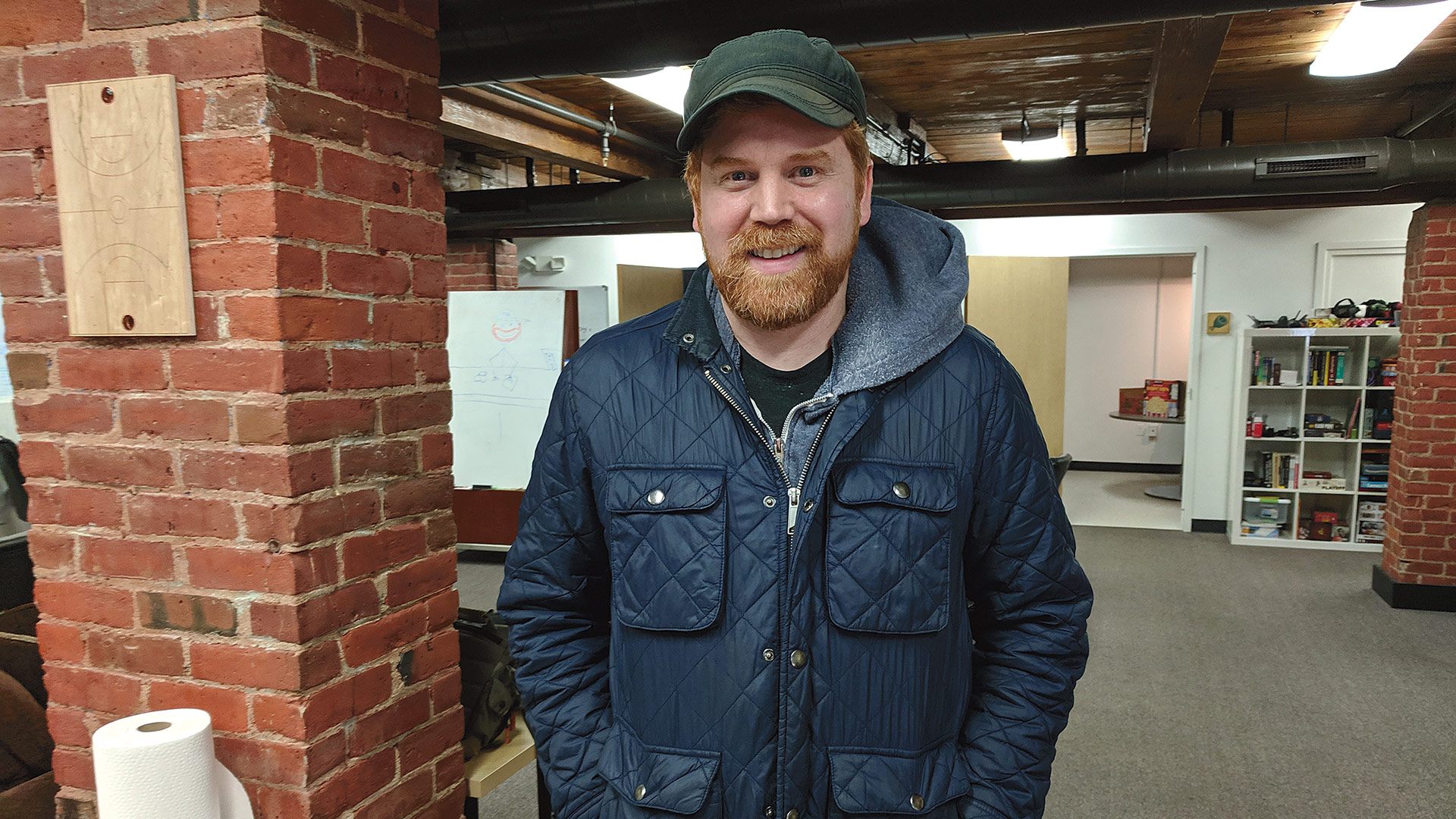
Pat King says Another Castle helps bring together the region’s large and far-flung game-design community through a number of programs.
King worked with Hake for many years, both with HitPoint and its precedessor, Paul Hake Productions, before striking out on his own about four years ago. During that time, he started a group called Pioneer Valley Game Developers, a networking community that now boasts about 300 members, many of whom gather for monthly meetups and events.
King started talking with Hake about the potential of a co-working space specifically geared for this crowd, especially considering that many are small and solo outfits that could benefit from the networking and shared resources Another Castle offers.
“About two years ago, I realized we have such a vibrant community, and a close community that’s really active and wants to get to know each other, so it made sense to look for a space,” King explained. “We’d looked at other models in other cities that have done similar co-working spaces for video-game developers. We had enough people that expressed interest, and thankfully Paul was also interested in moving to a new location and wanted to go in with me on a co-working space for game developers.”
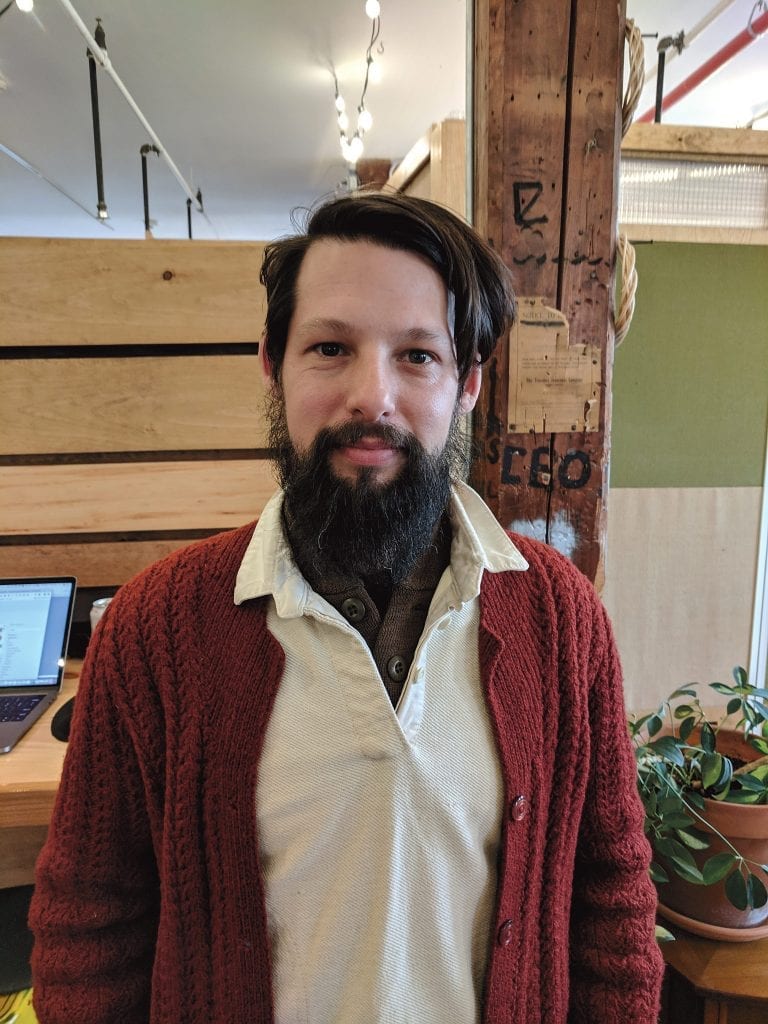
Michael Crigler found, in Greenspace CoWork, an ideal spot for his digital marketing agency, Bueno Social.
With just four members now — HitPoint is the anchor tenant, with about 12 employees — Another Castle has plenty of room to grow, despite the specific challenges of this niche-specific model (more on that later). But King, like Goldsher, is excited about the way the co-working environment encourages professionals to come together in the heart of Greenfield, rather than working alone.
Back to Life
Four years ago, Goldsher’s family bought the four-story building on the corner of Main Street and Court Square out of bankruptcy and rebranded it the Hawks & Reed building, after a former clothing store on Main Street. They have since brought new life — and many more events — to the arts and music space on the first floor, while Goldsher and Sauser worked to develop Greenspace CoWork on the upper floors.
The two met at a Franklin County Community Development Corp. event and were soon talking about the co-work concept, which Goldsher had seen flourishing while living in New York City.
“I was seeing co-working really starting to take off there, and it was something I wanted to see here. This is the wave of the future in workspaces for my generation, to address the modern needs of workers wherever they are,” said Goldsher, noting that the space has been designed with a Franklin County aesthetic in mind, with original wood floors, reclaimed materials, and greenery. “We didn’t want to throw a bunch of stuff into a space and say ‘done.’ It’s not overproduced, and it reflects Greenfield.”
His biggest challenge right now is building out more space in a building that could eventually house about 150 workers — although, like all co-work spaces, they’re typically not there all at once. About 30 individuals and companies call Greenspace home right now. Open 24/7, the facility has two secured entrances, and one of its conference rooms has access directly from the street without having to walk through the rest of the co-working space, which appeals to lawyers who meet with clients there.
Michael Crigler, who heads up digital marketing agency Bueno Social, is one of the original Greenspace clients, and is currently working with Goldsher to create a new logo and branding and redo its website.
“We had our own office down the street,” Crigler said. “It was nice, but my business partner and I were on the road a lot, meeting new clients, and we have a pretty big remote workforce; employees can work from anywhere. When just one or two people were in that big office, it felt empty, and didn’t feel like there was a lot going on, and we wanted to be more part of a community, where we can collaborate with people.”
When he heard about Greenspace, he was immediately intrigued.
“That week, I was like, ‘we’re going to get rid of our office and move in here.’ So far, our employees love it,” he noted. “I’ve never felt a sense of ease like I feel working here. Jeremy’s vision, and the way he’s built out the space, are warm and inviting, and the people it attracts are very cool. I’m really excited about the next few years in Greenfield.”
“About two years ago, I realized we have such a vibrant community, and a close community that’s really active and wants to get to know each other, so it made sense to look for a space.”
Members are attracted to co-working for a number of reasons, Goldsher said, among them lower prices than traditional office rent, flexible leases, and shared resources ranging from a printer, projector, conference rooms, and wi-fi to a kitchen with free tea and coffee.
Members range from stay-at-home fathers who show up in the wee hours to get some work done in a professional setting to Australis Aquaculture, an international fish-farming operation headquartered in Vietnam. When its fish farm in Turners Falls was shuttered and the farming operations consolidated overseas, the company needed a place to house eight employees who focus on sales and distribution to large food retailers in the U.S.
“I think it’s a great concept,” said Jackie Galvis, an administrative, financial, and human-resources assistant with Australis. “And it’s cool because this is a historic building.”
Goldsher said it was beyond his expectations to have a company of that size as a member, but at the same time, it makes sense.
“They were downsizing their space but wanted to upgrade in the amenities and the culture,” he noted. “We’re just lucky to have people from the community believe in what we’re building here and invest in our dream. You hear these stories about the synergy that happens in a co-working space, but it’s actually happening.”
Game On
It’s happening at Another Castle as well, though perhaps at a different pace. Besides the 10 HitPoint staffers who work there, Vermont Digital Arts utilizes the space, while the rest of the current members include a 3D artist, a software engineer, and an electrical engineer.
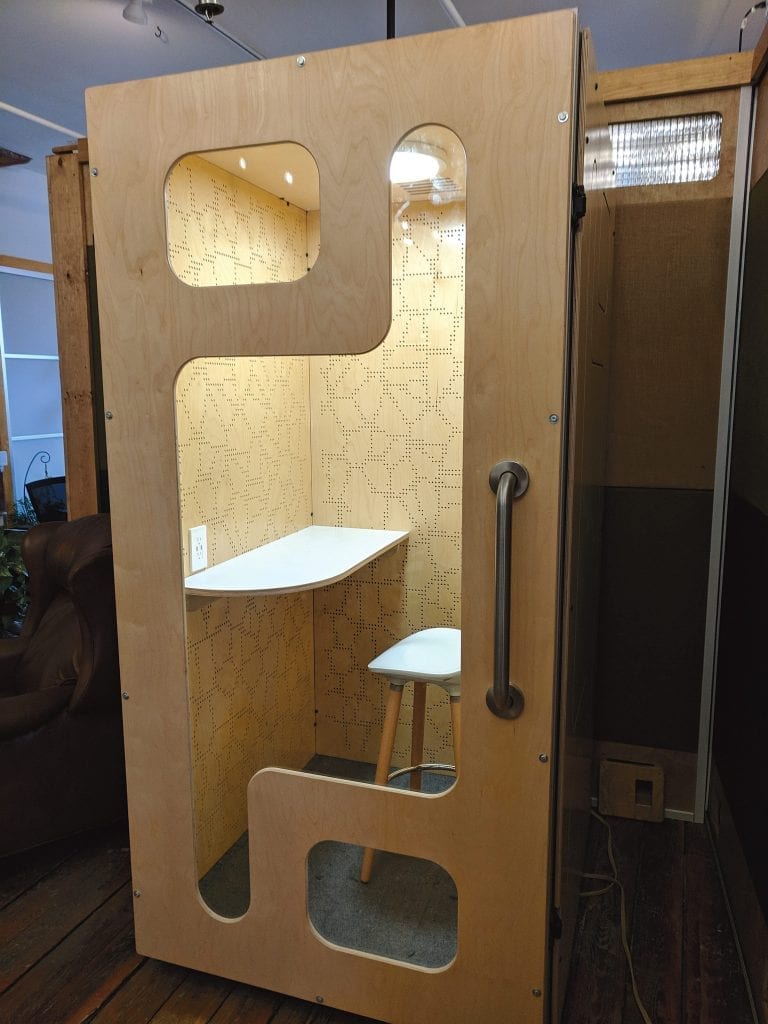
Greenspace CoWork’s private, soundproof phone booths were designed and built in house.
“It’s a slightly different beast than a general co-working space,” King said, noting that only about half the game developers and designers in the region are making money in this field, making it difficult to afford even the reasonable rates co-work spaces charge.
“I’ve seen numerous success stories of people who have been able to get work through the community, either from HitPoint or word of mouth,” he noted. “So people are definitely interested, but it can be a challenge making pricing work because it’s a hobbyist community. People want to support the space but can’t necessarily join.”
That’s why he and Hake are exploring the possibility of adding incubator space at even lower cost, to attract more startups who might benefit from the synergies, guidance, and networking opportunities available, as well as the 24/7 access and shared resources — not just the wi-fi, conference rooms, and flexible membership plans common to most co-working spaces, but a wide array of cutting-edge computer hardware to be used for testing, playing, or just for being productive.
And the events, too. Another Castle often serves as a community space for events like last month’s Global Game Jam, which drew about 50 participants who designed games for a frenzied 48 hours, producing 15 games by the end of the weekend.
“That was amazing to see a packed space, all people working on different projects,” King said. “We also host monthly educational events and a few workshops here, and we’ve led a couple at GCC and other institutions.”
Greenspace CoWork hosts community meetings as well, Goldsher said, just another way he hopes the venture connects professionals to the city and region around them.
“We want our members to be able to accomplish what they would in a corporate setting, but we also want them to go out into the community and enjoy all the resources and the natural beauty here,” he told BusinessWest, noting that he dreamed of something resembling a co-working environment when he was a kid, even though he had no idea they actually existed, or what they were called.
“This is just a child bringing his dream to life,” he said. “I’ve created a comfortable space that’s open 24/7, and anyone is welcome to join.”
Joseph Bednar can be reached at [email protected]
 We are excited to announce that BusinessWest has launched a new podcast series, BusinessTalk. Each episode will feature in-depth interviews and discussions with local industry leaders, providing thoughtful perspectives on the Western Massachuetts economy and the many business ventures that keep it running during these challenging times.
We are excited to announce that BusinessWest has launched a new podcast series, BusinessTalk. Each episode will feature in-depth interviews and discussions with local industry leaders, providing thoughtful perspectives on the Western Massachuetts economy and the many business ventures that keep it running during these challenging times.














